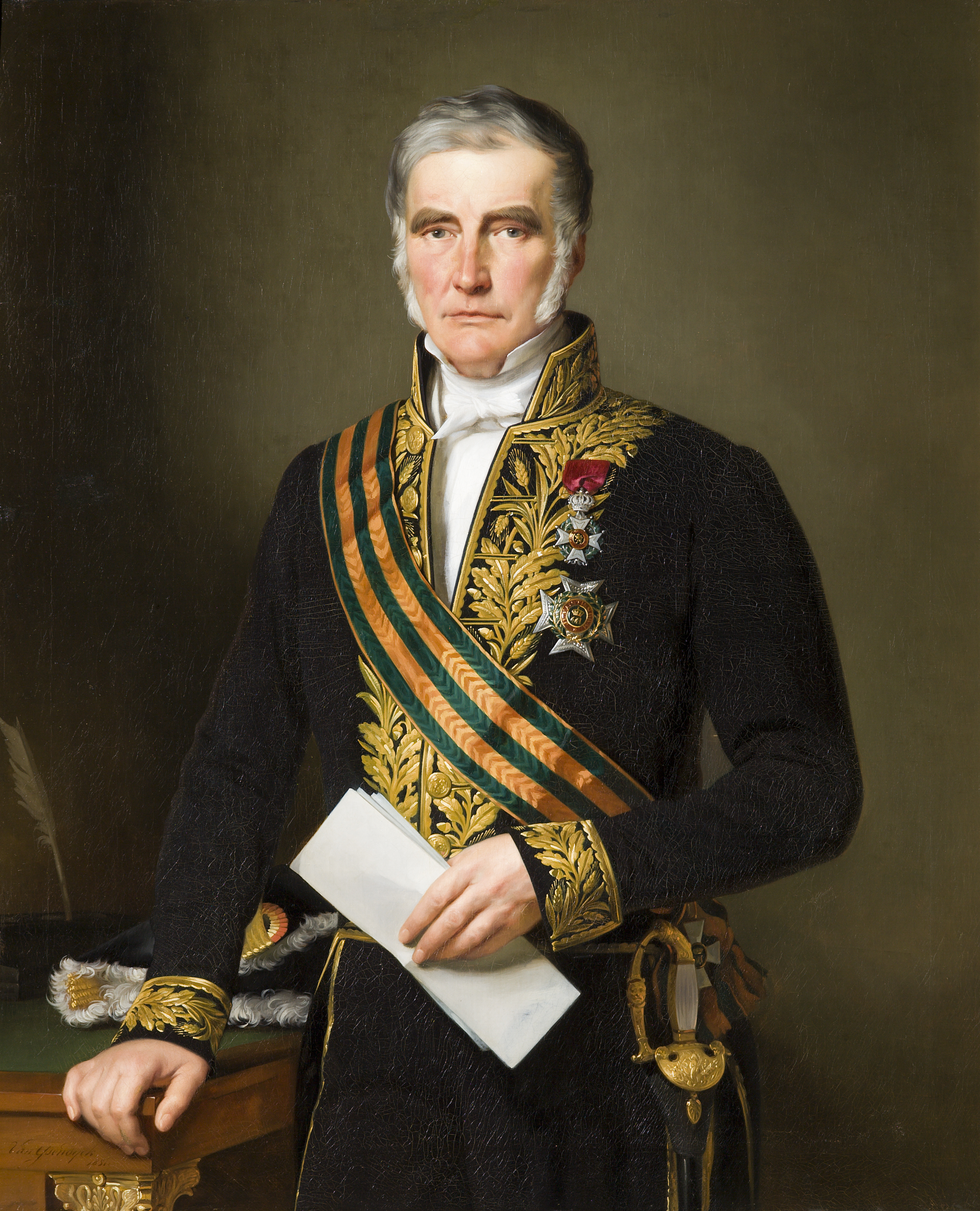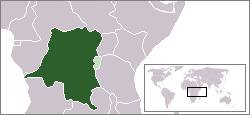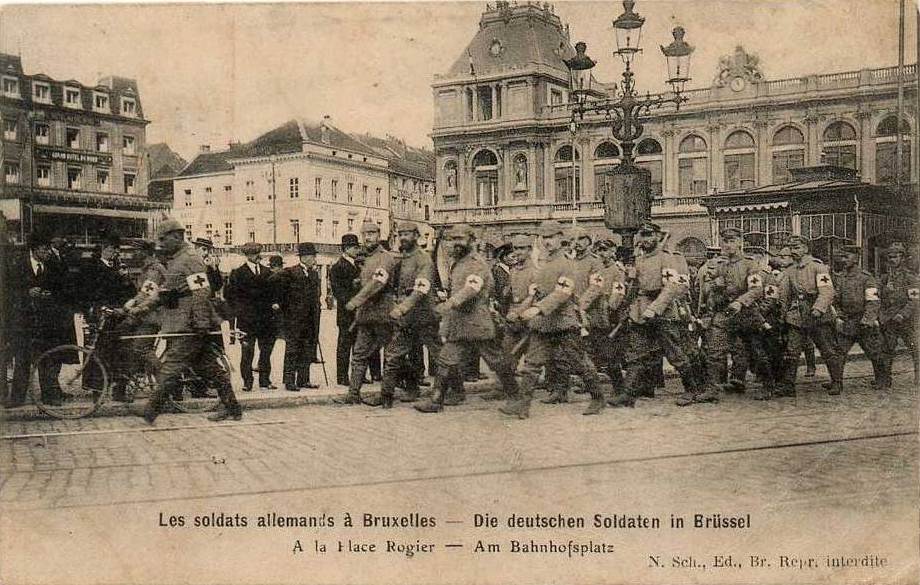|
Maurice Lippens (governor)
Maurice Auguste Count Lippens (21 August 1875 – 12 July 1956) was a noble Belgian businessman, politician, and colonial civil servant and lawyer. Born into an influential Liberal family, Lippens practiced as a lawyer before entering local politics in his native province of East Flanders. His business interests included a number of colonial companies. After serving as governor of East Flanders (1919–21), Lippens was recruited to serve as Governor-General of the Belgian Congo (1921–23) in which capacity he launched a major administrative reform. After resigning from the post following disagreement with the colonial administration in Belgium, Lippens returned to his business career and re-entered Belgian politics. After serving in a number of ministerial position, his political career culminated in an appointment as President of the Senate (1934–36). He returned to his business career after resigning from politics in 1936, retiring from business also in 1952. He died in ... [...More Info...] [...Related Items...] OR: [Wikipedia] [Google] [Baidu] |
List Of Presidents Of The Belgian Senate
The president of the Senate ( nl, Voorzitter van de Senaat, french: Président du Sénat) is the presiding officer of the upper house of the Belgian Federal Parliament, Federal Parliament of Belgium. The current president of the Senate is Stephanie D'Hose. It is custom that the president gets its portrait painted by an artist, in the collection of art of the Senate some famous works can be found like portraits painted by Alfred Cluysenaar. See also *Belgian Senate *List of presidents of the Belgian Chamber of Representatives *Politics of Belgium Notes Sources *{{cite book , last = Laureys , first = Véronique , author2=Mark Van den Wijngaert , author3=Luc François , author4=Emmanuel Gerard , author5=Jean-Pierre Nandrin , author6=Jean Stengers , title = De geschiedenis van de Belgische Senaat: 1831-1995 , publisher = Tielt: Lannoo , year = 1999 , isbn = 90-209-3682-4 External linksOfficial Website of the Belgian Senate __NOTOC__ Presidents of the ... [...More Info...] [...Related Items...] OR: [Wikipedia] [Google] [Baidu] |
Governor-General Of The Belgian Congo
This is a list of European colonial administrators responsible for the territory of the Congo Free State and Belgian Congo (today the Democratic Republic of the Congo). International Association of the Congo Prior to the creation of the Congo Free State, the International Association of the Congo (IAC) had signed treaties with over 300 native Congolese chiefs and in effect exercised sovereignty over a large area of the Congo Basin. The IAC was headquartered in Belgium and run by a committee under the presidency of Maximilien Strauch. Prior to the creation of the office of Administrator-General, authority on the ground in the Congo had been exercised by a Chief of Expedition, who until April 1884 was Henry Morton Stanley. Congo Free State Administrators-General / Governors-General Vice Governors-General Belgian Congo On 1 July 1960, the Belgian Congo became independent as the Republic of the Congo (Léopoldville), Republic of the Congo (''République du Congo''). See al ... [...More Info...] [...Related Items...] OR: [Wikipedia] [Google] [Baidu] |
Minister Of The Colonies (Belgium)
The Belgian Minister of the Colonies (french: Ministre des Colonies, nl, Minister van Koloniën) was a Belgian parliamentarian who was responsible for the territories of the colonial empire in Central Africa from 1908 to 1962, comprising the colony of the Belgian Congo (1908–60) and the international mandate of Ruanda-Urundi (1916–62). The exact title was changed on several occasions. Ministerial title For most of the existence of the post, office holders were known as "Minister of the Colonies" (''Ministre des Colonies'' or ''Minister van Koloniën''). From the accession of in November 1958, however, the ministerial title changed to "Minister of the Belgian Congo and Ruanda-Urundi" (''Ministre du Congo belge et du Ruanda-Urundi'' or ''Minister van Belgisch-Congo en Ruanda-Urundi''). On 30 June 1960, with the independence of the Belgian Congo, the title changed to "Minister of African Affairs" (''Ministre des affaires africaines'' or ''Minister van afrikaanse zaken'') whose ... [...More Info...] [...Related Items...] OR: [Wikipedia] [Google] [Baidu] |
Louis Franck (politician)
Louis Marie François Franck (28 November 1868 – 31 December 1937) was a Belgian lawyer and liberal politician. Education He was born in Antwerp, and began his education at the ''Koninklijk Atheneum'' (E: Royal Atheneum) of Antwerp, where he was influenced by the Flemish writer and liberal politician Jan van Beers, and he obtained a law degree at the Free University of Brussels (now split into the Université Libre de Bruxelles and the Vrije Universiteit Brussel). As a student, he was one of the co-founders of the secular humanist ''Cercle Universitaire'' (1887), he wrote for the ''Journal des Etudiants'' (1889) and in 1890 he was founder-President of the ''Cercle Universitaire de Criminologie''. Career In 1890, he set up practice as a lawyer in Antwerp and specialized himself in international marine law. As the president of the ''Conférence du Jeune Barreau'' (Young Lawyers' Conference) and as a member of the ''Vlaamse Conferentie der Balie'' (Flemish Bar Associatio ... [...More Info...] [...Related Items...] OR: [Wikipedia] [Google] [Baidu] |
World War I
World War I (28 July 1914 11 November 1918), often abbreviated as WWI, was one of the deadliest global conflicts in history. Belligerents included much of Europe, the Russian Empire, the United States, and the Ottoman Empire, with fighting occurring throughout Europe, the Middle East, Africa, the Pacific, and parts of Asia. An estimated 9 million soldiers were killed in combat, plus another 23 million wounded, while 5 million civilians died as a result of military action, hunger, and disease. Millions more died in genocides within the Ottoman Empire and in the 1918 influenza pandemic, which was exacerbated by the movement of combatants during the war. Prior to 1914, the European great powers were divided between the Triple Entente (comprising France, Russia, and Britain) and the Triple Alliance (containing Germany, Austria-Hungary, and Italy). Tensions in the Balkans came to a head on 28 June 1914, following the assassination of Archduke Franz Ferdi ... [...More Info...] [...Related Items...] OR: [Wikipedia] [Google] [Baidu] |
German Occupation Of Belgium During World War I
The German occupation of Belgium (french: link=no, Occupation allemande, nl, Duitse bezetting) of World War I was a military occupation of Belgium by the forces of the German Empire between 1914 and 1918. Beginning in August 1914 with the invasion of neutral Belgium, the country was almost completely overrun by German troops before the winter of the same year as the Allied forces withdrew westwards. The Belgian government went into exile, while King Albert I and the Belgian Army continued to fight on a section of the Western Front. Under the German military, Belgium was divided into three separate administrative zones. The majority of the country fell within the General Government, a formal occupation administration ruled by a German general, while the others, closer to the front line, came under more repressive direct military rule. The German occupation coincided with a widespread economic collapse in Belgium with shortages and widespread unemployment, but also with a re ... [...More Info...] [...Related Items...] OR: [Wikipedia] [Google] [Baidu] |
Compagnie Du Congo Pour Le Commerce Et L'Industrie
The Compagnie du Congo pour le Commerce et l’Industrie (CCCI) was a private enterprise in the Congo Free State, later the Belgian Congo and then the Democratic Republic of the Congo, whose subsidiaries engaged in a wide range of activities in the Congo between 1887 and 1971. These included railway and river transport, mining, agriculture, banking, trading and so on. It was the largest commercial enterprise in the Congo for many years. It went through various mergers in the years that followed before its successor Finoutremer was liquidated in 2000. Foundation When the Congo Free State was formed in 1885, King Leopold II of Belgium thought of appointing Albert Thys (1849–1915), his secretary for colonial affairs, to head the new state. Thys dissuaded him, but proposed to create the ''Compagnie du Congo pour le Commerce et l’Industrie'' (CCCI) and to go to the lower Congo in person to look into building a railway from Matadi to Léopoldville, and to set engineers to work on t ... [...More Info...] [...Related Items...] OR: [Wikipedia] [Google] [Baidu] |
Moerbeke
Moerbeke () is a Municipalities of Belgium, municipality in the Belgium, Belgian province of East Flanders. It is sometimes unofficially called Moerbeke-Waas () to distinguish between this place and in Geraardsbergen. The municipality comprises the town of Moerbeke proper, and part of the Dutch-Belgian village Koewacht. In 2021, Moerbeke had a total population of 6,619. The total area is 37.80 km². Moerbeke was known very well for its sugar refinery. It is thought to have been the hometown of William of Moerbeke, who as Bishop of Corinth produced a new translation into Latin of the works of Aristotle, including certain which had been rediscovered from Arab sources, in the late 13th century. Unique is the political situation: since 1847 the Flemish Liberals and Democrats, liberal party has an absolute majority. The current mayor is Robby De Caluwé. The previous mayor was Filip Marin. The aldermen are Pierre De Bock, Marc Fruytier, Thierry Walbrecht, Sarah Poppe and Rudy ... [...More Info...] [...Related Items...] OR: [Wikipedia] [Google] [Baidu] |
Provinces Of Belgium
The Kingdom of Belgium is divided into three regions. Two of these regions, Flanders and Wallonia, are each subdivided into five provinces. The third region, Brussels, does not belong to any province and nor is it subdivided into provinces. Instead, it has amalgamated both regional and provincial functions into a single "Capital Region" administration. Most of the provinces take their name from earlier duchies and counties of similar location, while their territory is mostly based on the departments installed during French annexation. At the time of the creation of Belgium in 1830, only nine provinces existed, including the province of Brabant, which held the City of Brussels. In 1995, Brabant was split into three areas: Flemish Brabant, which became a part of the region of Flanders; Walloon Brabant, which became part of the region of Wallonia; and the Brussels-Capital Region, which became a third region. These divisions reflected political tensions between the French-spea ... [...More Info...] [...Related Items...] OR: [Wikipedia] [Google] [Baidu] |
University Of Ghent
Ghent University ( nl, Universiteit Gent, abbreviated as UGent) is a public research university located in Ghent, Belgium. Established before the state of Belgium itself, the university was founded by the Dutch King William I in 1817, when the region was incorporated into the United Kingdom of the Netherlands after the fall of First French Empire. In that same year, he founded two other universities for the southern provinces as well, alongside Ghent University: University of Liège and State University of Leuven. After the Belgian revolution of 1830, the newly formed Belgian state began to administer Ghent University. In 1930, UGent became the first Dutch-speaking university in Belgium. Previously, French (and, even earlier, Latin) had been the standard academic language in what was ''Université de Gand''. In 1991, it was granted major autonomy and changed its name accordingly from ''State University of Ghent'' ( nl, Rijksuniversiteit Gent, abbreviated as ''RUG'') to its cu ... [...More Info...] [...Related Items...] OR: [Wikipedia] [Google] [Baidu] |
List Of Noble Families In Belgium
A list of noble families in Modern Belgium with additions of former houses. General Currently, the Belgian crown recognizes the titles of jonkheer, knight, baron, viscount, count, marquis, duke and prince. The persons who legally are member of the nobility have the legal right to protect their family name and coat of arms. The houses bearing the titles of prince and duke are described more thoroughly on the Belgian nobility page. Princes * d'Arenberg * de Chimay et de Caraman * de Croÿ, de Croÿ-Rœulx, de Croÿ-Solre * de Ligne, de Ligne de la Trémoïlle * de Lobkowicz * de Merode * Swiatopolk-Czetwertynski (Polish princely family whose title was recognized in Belgium in 2007) * Wellesley Dukes * The Duke of Arenberg * The Duke of Beaufort-Spontin * The Duke of Looz-Corswarem * The Duke of Ursel Marquesses * The Marquess of Beauffort - (only the head of the house, the others are count/countess) * Imperiali des Princes de Francavilla * de Mérode (Marque ... [...More Info...] [...Related Items...] OR: [Wikipedia] [Google] [Baidu] |
Senate Of Belgium
The Senate ( nl, Senaat, ; french: Sénat, ; german: Senat) is one of the two chambers of the bicameral Federal Parliament of Belgium, the other being the Chamber of Representatives. It is considered to be the "upper house" of the Federal Parliament. Created in 1831 as a chamber fully equal to the Chamber of Representatives, it has undergone several reforms in the past, most notably in 1993 and 2014. The 2014 elections were the first without a direct election of senators. Instead, the new Senate is composed of members of community and regional parliaments and co-opted members. It is a chamber of the communities and regions and serves as a platform for discussion and reflection about matters between these federated entities. The Senate today plays a minor role in the federal legislative process. However, the Senate, together with the Chamber, has full competence for the Constitution and legislation on the organization and functioning of the Federal State and the federated entitie ... [...More Info...] [...Related Items...] OR: [Wikipedia] [Google] [Baidu] |




._Le_Colonel_Albert_Thys.jpg)
.png)
